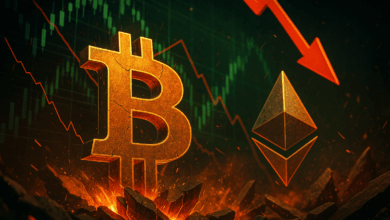
Klarna Ventures into Cryptocurrency: A New Chapter for the Fintech Giant
Swedish financial services powerhouse Klarna is stepping into the world of cryptocurrency. This move is described by Klarna’s CEO, Sebastian Siemiatkowski, as the company being the “last fintech in the world to embrace” crypto. Although Siemiatkowski anticipated minimal attention for his announcement, the community has recognized it as a significant development.
So, what took Klarna so long to make this move, and what sorts of cryptocurrency services might they offer? Let’s explore further.
Buy Now, Pay Later: Klarna’s Foray into Cryptocurrency Explained
If the brand name ‘Klarna’ isn’t immediately familiar, perhaps you’ve heard of the concept of ‘shop now, pay later.’ Klarna has become synonymous with this flexible payment solution, attracting a user base of over 85 million and partnering with 575,000 retailers worldwide.
While fintech competitors like Revolut and PayPal have been diving into the crypto waters—PayPal even launched its own stablecoin—Siemiatkowski was initially skeptical. He once referred to Bitcoin as a “decentralized Ponzi scheme” and critiqued the high transaction fees associated with cryptocurrencies like Ethereum, overlooking more cost-effective options such as XRP and Sui.
In 2021, Siemiatkowski confessed to a lack of understanding regarding blockchain and crypto mining. However, much has evolved since then, and Klarna is now eager to enter the crypto market. Although Siemiatkowski hasn’t divulged specific plans, speculation abounds about whether Klarna will introduce flexible crypto payments or an entirely new service.
Siemiatkowski has also encouraged his followers to propose ideas for Klarna’s crypto integration. Noteworthy suggestions include:
- Utilizing Hedera Hashgraph, Solana, or XRPL for transaction processing
- Settling transactions with stablecoins
- Offering cashback rewards in Bitcoin
- Introducing a ‘buy crypto and pay later’ feature
Only time will tell if Klarna will act on any of these innovative proposals.
Beyond the Basics: How Best Wallet Outperforms Traditional Fintech Apps
While fintech platforms like PayPal and Revolut have ventured into cryptocurrency, their offerings are primarily suited for beginners. For instance, Revolut allows crypto trading but doesn’t support staking, new token presales, or NFT storage—features that are standard on advanced platforms like Best Wallet.
Best Wallet stands out as a robust and secure digital asset management solution. Beyond simply holding assets, it enables users to swap, stake, track, and compare tokens across various blockchain networks. Furthermore, Best Wallet is the pioneering app that facilitates direct investments in emerging token presales, presenting a curated selection of vetted projects within a user-friendly interface.
The platform’s native token, $BEST, is currently priced at $0.02395 during its presale. Token holders benefit from reduced trading fees, enhanced staking yields, and governance rights. With only one day remaining before the next price increase, now is the opportune moment to acquire these tokens at a discount.
Adapt or Lag Behind: The Fintech Sector’s Wake-Up Call
Klarna’s strategic shift underscores the necessity for fintech companies to acknowledge the burgeoning demand for cryptocurrency. Even the most resistant firms are compelled to adapt to evolving consumer preferences and integrate blockchain technologies.
However, traditional fintech institutions face challenges in competing with crypto-centric platforms like Best Wallet, which offer unique features such as a crypto presale aggregator and staking options. This specialized functionality could be pivotal in helping Best Wallet achieve its ambitious target of capturing 40% of the market by 2026.
As always, it’s crucial to conduct thorough research (DYOR) before engaging in any cryptocurrency project, given the market’s inherent volatility and the absence of guaranteed returns.
“`







